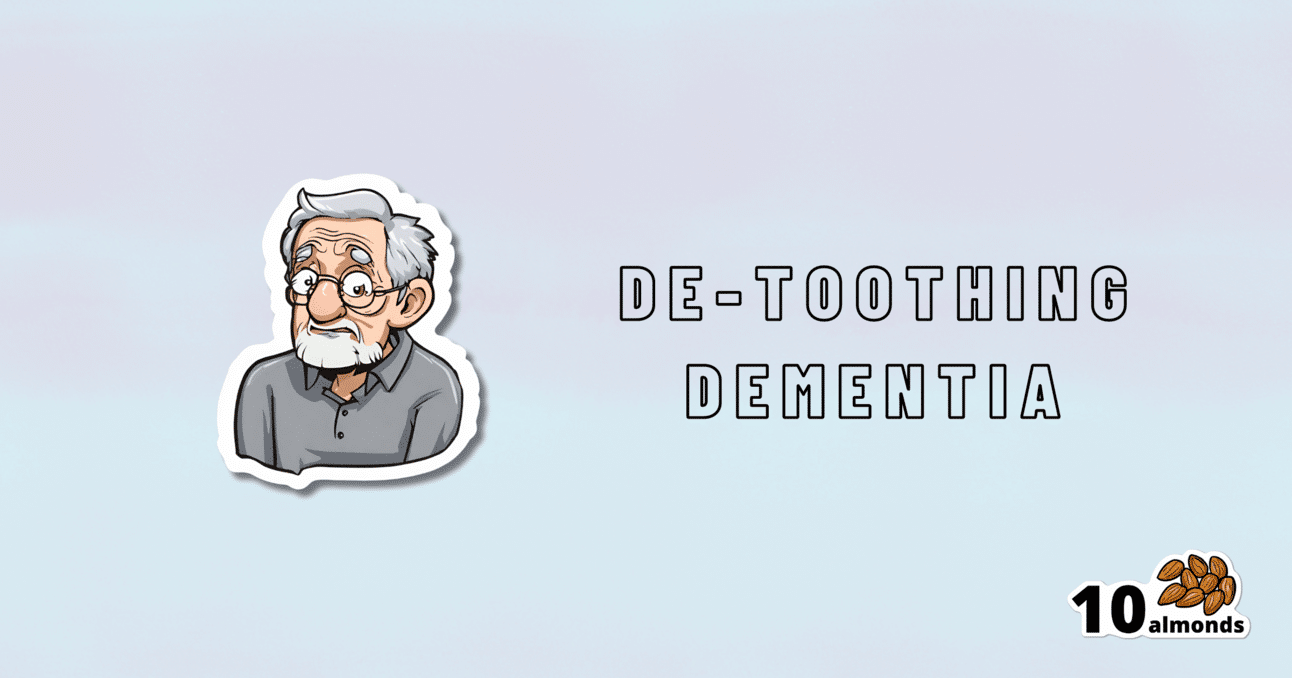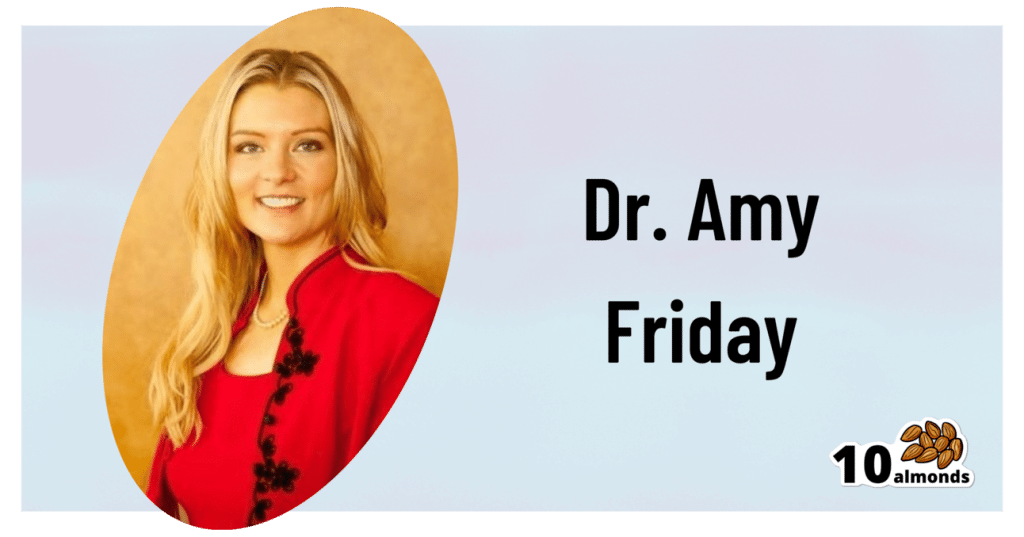Beyond Guarding Against Dementia
Dr. Amy Friday helps you navigate aging, memory loss, and dementia with practical tips and strategies. Take control of your brain health today.

When Age’s Brain-Changes Come Knocking

This is Dr. Amy Friday. She’s a psychologist, specializing in geropsychology and neuropsychological assessments.
In other words, she helps people optimize their aging experience, particularly in the context of brain changes as we get older.
What does she want us to know?
First: be not afraid
Ominous first words, but the fact is, there’s a lot to find scary about the prospect of memory loss, dementia, and death.
However, as she points out:
- Death will come for us all sooner or later, barring technology as yet unknown
- Dementia can be avoided, or at least stalled, or at least worked around
- Memory loss, as per the above, can be avoided/stalled/managed
We’ve written a little on these topics too:
…or if the death is not yours:
As for avoiding dementia, the below-linked feature is about Alzheimer’s in particular (which accounts for more than half of all cases of dementia), but the advice goes for most of the other kinds too:
How To Reduce Your Alzheimer’s Risk
And finally, about memory loss specifically:
How To Boost Your Memory Immediately (Without Supplements)
👆 this one is especially about cementing into one’s brain the kinds of memories that people most fear losing with age. People don’t worry about forgetting their PIN codes; they worry about forgetting their cherished memories with loved ones. So, if that’s important to you, do consider checking out this one!
What is that about managing or working around the symptoms?
If we’re missing a limb, we (usually) get a prosthetic, and/or learn how to operate without that limb.
If we’re missing sight or hearing, partially or fully, there are disability aids for those kinds of things too (glasses are a disability aid! Something being very common does not make it not a disability; you literally have less of an ability—in this case, the ability to see), and/or we learn how to operate with our different (or missing) sense.
Dr. Friday makes the case for this being the same with memory loss, dementia, and other age-related symptoms (reduced focus, increased mental fatigue, etc):
❝We are all screwed up. Here’s my flavor … what’s yours? This is a favorite saying of mine, because we ARE all screwed up in one way or another, and when we acknowledge it we can feel closer in our screwed-up-edness.
We are all experiencing “normal aging,” so that tip-of-the-tongue phenomenon that starts in our thirties and slowly gets worse is REAL. But what if you’re having more problems than normal aging? Is it time to throw in the towel and hide? I’m hoping that there is a group of people who say HELL NO to that idea.
Let’s use lessons from research and clinical practice to help all of us work around our weaknesses, and capitalize on our strengths. ❞
Examples of this might include:
- Writing down the things most important to you (a short list of information and/or statements that you feel define you and what matters most to you), so that you can read it later
- Making sure you have support (partner, family, friends, etc) who are on the same page about this topic—and thus will actually support you and advocate for you, instead of arguing about what is in your best interest without consulting you.
- Labelling stuff around the house, so that you get less confused about what is what and where it is
- Having a named go-to advocate that you can call / ask to be called, if you are in trouble somewhere and need help that you can rely on
- Getting a specialized, simpler bank account; hiring an accountant if relevant and practicable.
The thing is, we all want to keep control. Sometimes we can do that! Sometimes we can’t, and if we’re going to lose some aspect of control, it’ll generally go a lot better if we do it on our own terms, so that we ourselves can look out for future-us in our planning.
Want to know more?
You might enjoy her blog, which includes also links to her many videos on the topic, including such items as:
- Neuroplasticity – #1 Way To Increase Brain Health
- Which Diet PREVENTS Alzheimer’s? | Best Brain Health Diet
- Stop Anxiety About Dementia & Do I Have Dementia?
For the rest, see:
This Beautiful Brain | The Science Of Brain Health
Enjoy!
Share This Post
Learn To Grow
Sign up for weekly gardening tips, product reviews and discounts.




